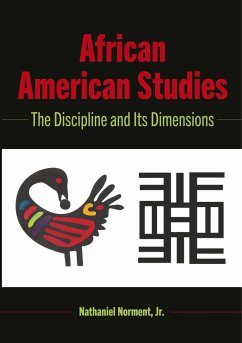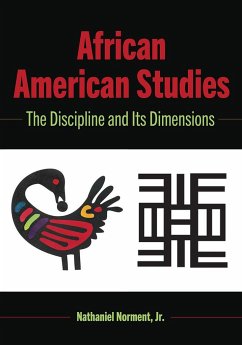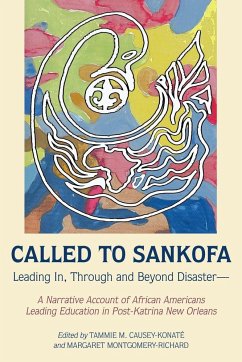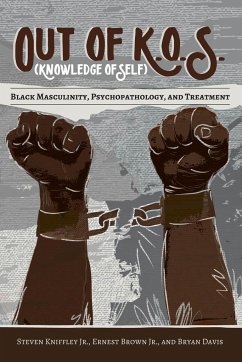
What Is This Thing Called Soul
Conversations on Black Culture and Jazz Education
Herausgegeben: Brock, Rochelle
Versandkostenfrei!
Versandfertig in 6-10 Tagen
60,15 €
inkl. MwSt.
Weitere Ausgaben:

PAYBACK Punkte
0 °P sammeln!
How does academic jazz education impact the Black cultural value of soulfulness and esthetic standards in contemporary jazz music? Through candid conversations with nine of the country's most highly respected jazz practitioners and teachers, What Is This Thing Called Soul explores the potential consequences of forcing the Black musical style of jazz into an academic pedagogical system that is specifically designed to facilitate the practice and pedagogy of European classical music. This work tests the belief that the cultural, emotional and esthetic elements at the very core of jazz's unique i...
How does academic jazz education impact the Black cultural value of soulfulness and esthetic standards in contemporary jazz music? Through candid conversations with nine of the country's most highly respected jazz practitioners and teachers, What Is This Thing Called Soul explores the potential consequences of forcing the Black musical style of jazz into an academic pedagogical system that is specifically designed to facilitate the practice and pedagogy of European classical music. This work tests the belief that the cultural, emotional and esthetic elements at the very core of jazz's unique identity, along with the music's overt connection to Black culture, are effectively being "lost in translation" in traversing the divide between academic and non-academic jazz spheres.
Each interviewee commands significant respect worldwide in the fields of jazz performance and jazz pedagogy. Noteworthy subjects include: Rufus Reid, Lewis Nash, Nicholas Payton and Wycliffe Gordon-along with the late jazz masters Marcus Belgrave and Phil Woods. Interviews are supplemented by original analysis of the nature and validity of these issues contributed by the author.
What Is This Thing Called Soul offers a candid and objective look into pressing issues of race, culture and ethnic value in relation to both jazz music and jazz education. Sensitivity, marginalization and even a fear of offending others has limited open discussion of how the soul of jazz music can be lost in technical boundaries. What Is This Thing Called Soul is the first attempt to directly address such culturally urgent issues in jazz music.
Each interviewee commands significant respect worldwide in the fields of jazz performance and jazz pedagogy. Noteworthy subjects include: Rufus Reid, Lewis Nash, Nicholas Payton and Wycliffe Gordon-along with the late jazz masters Marcus Belgrave and Phil Woods. Interviews are supplemented by original analysis of the nature and validity of these issues contributed by the author.
What Is This Thing Called Soul offers a candid and objective look into pressing issues of race, culture and ethnic value in relation to both jazz music and jazz education. Sensitivity, marginalization and even a fear of offending others has limited open discussion of how the soul of jazz music can be lost in technical boundaries. What Is This Thing Called Soul is the first attempt to directly address such culturally urgent issues in jazz music.














